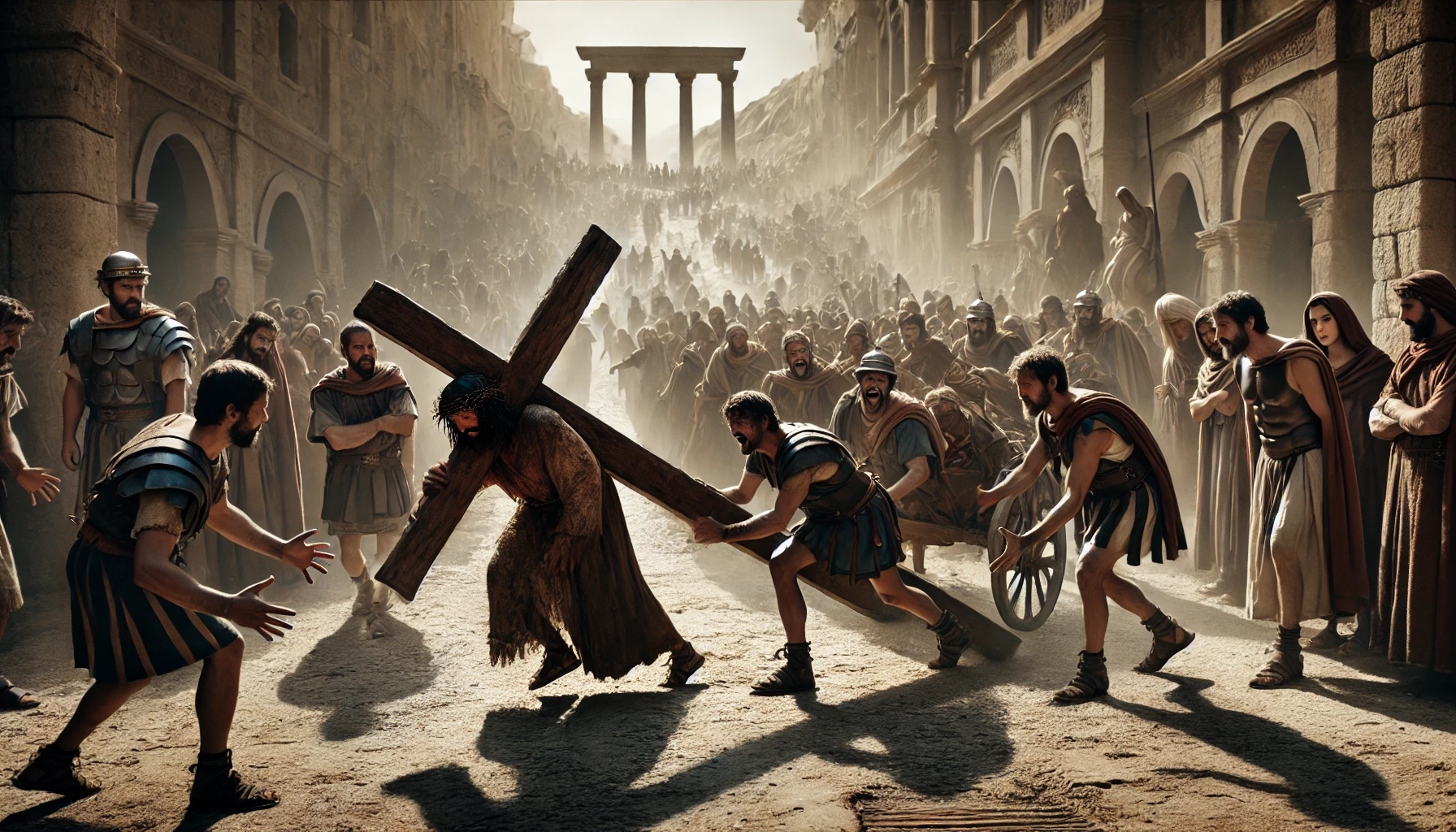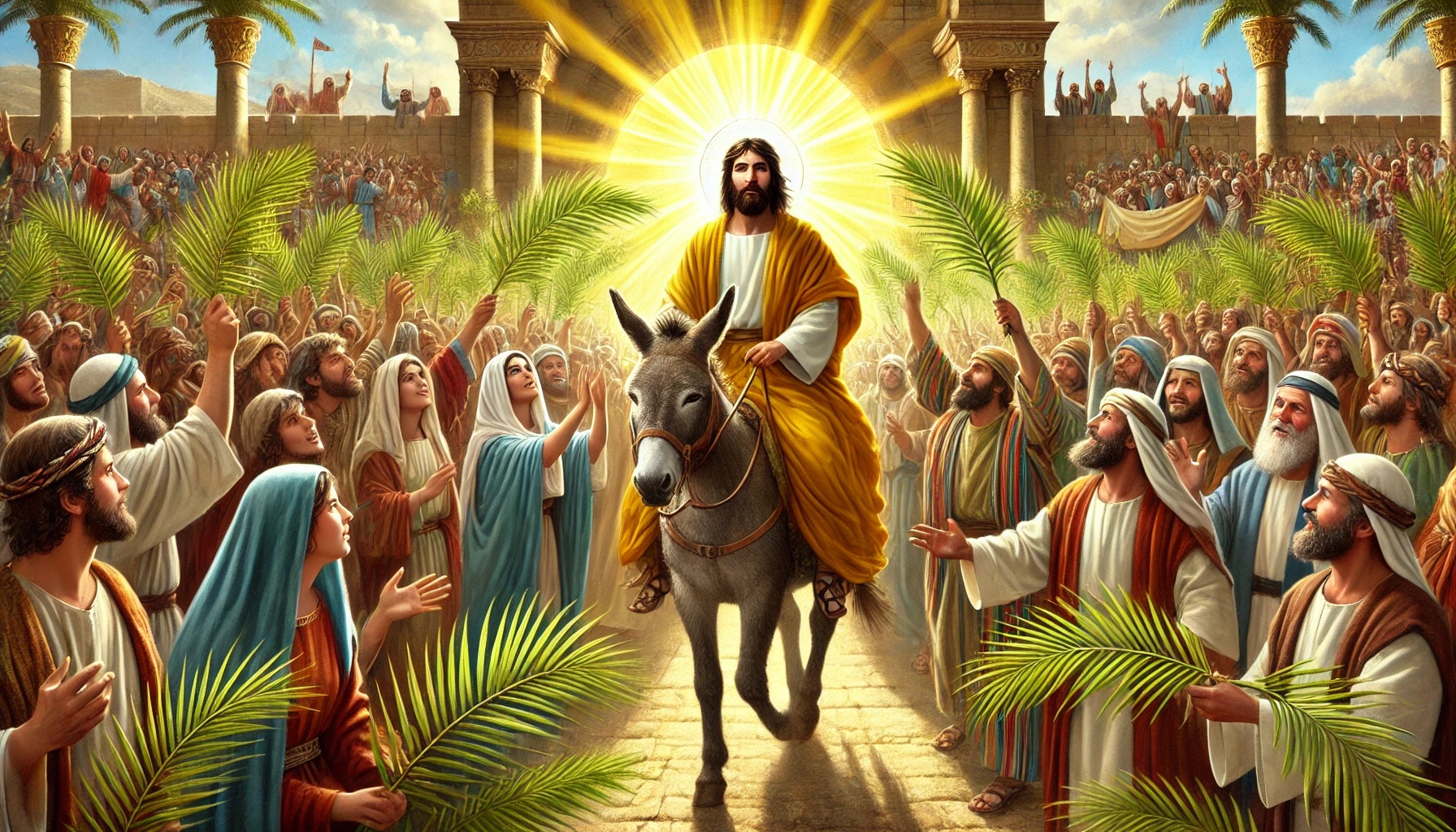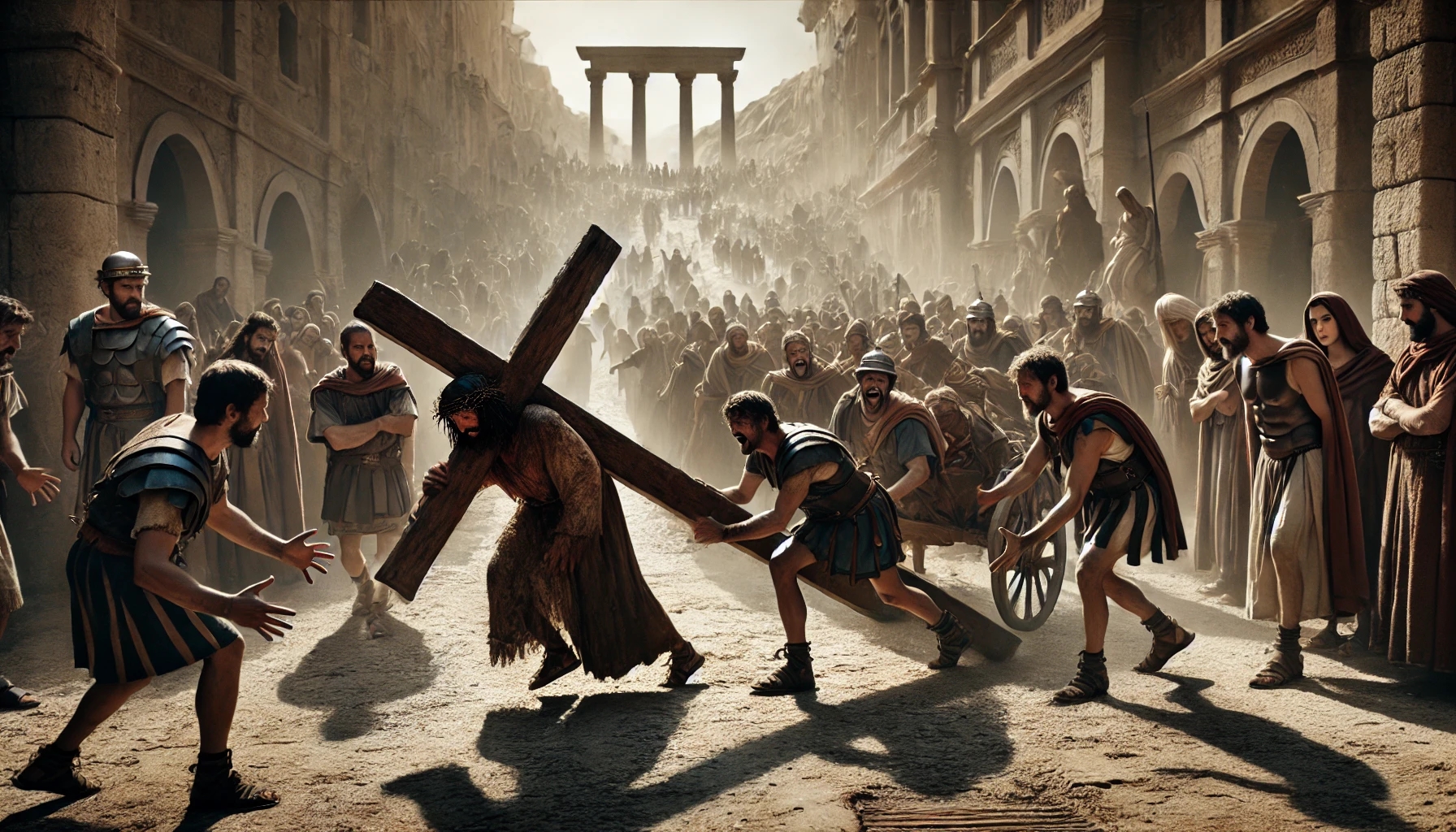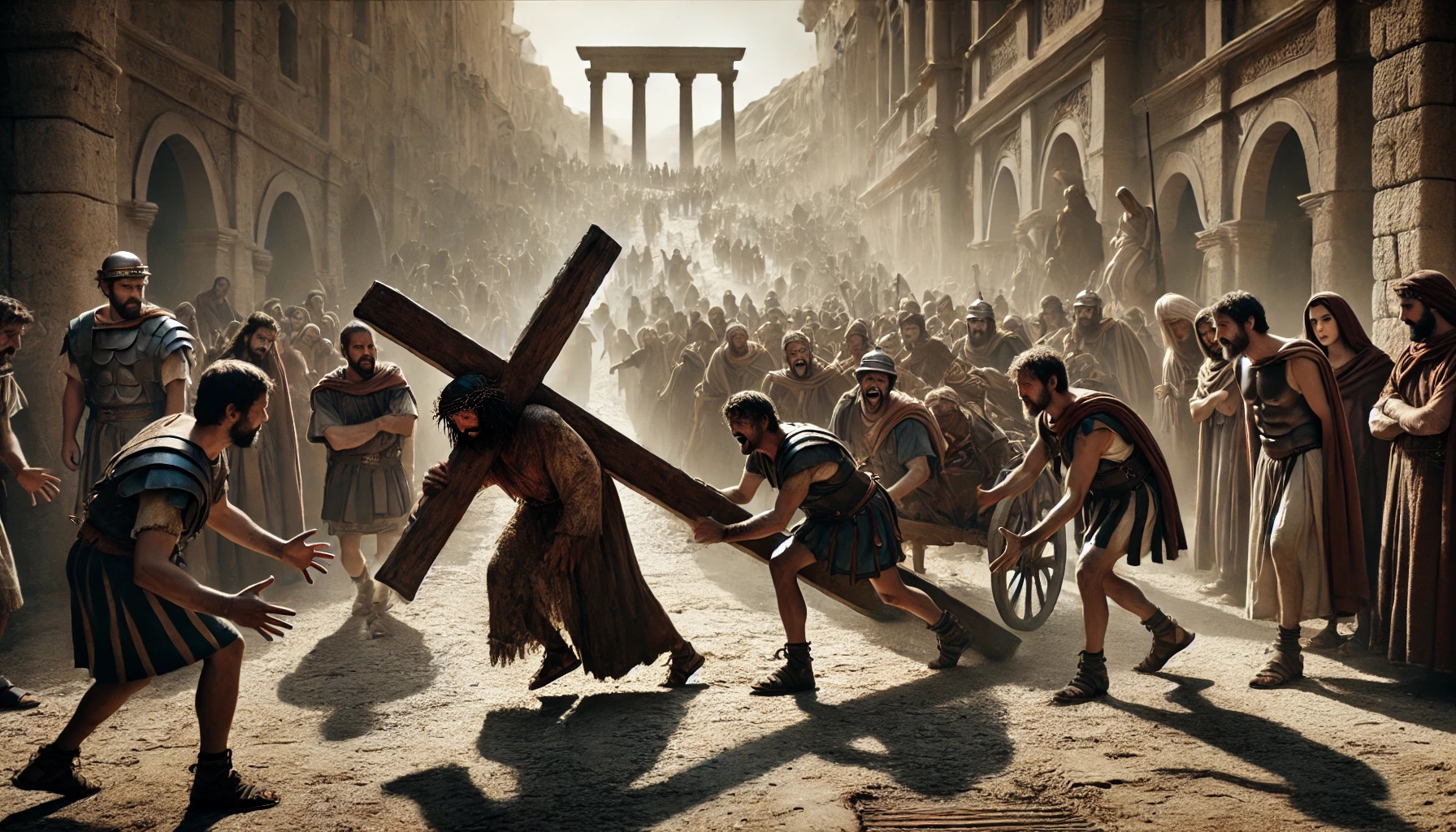December 5, 2024
DAILY BIBLE READING – Romans Chapter 11
1 I say then, Hath God cast away his people? God forbid. For I also am an Israelite, of the seed of Abraham, of the tribe of Benjamin.
2 God hath not cast away his people which he foreknew. Wot ye not what the scripture saith of Elias? how he maketh intercession to God against Israel saying,
3 Lord, they have killed thy prophets, and digged down thine altars; and I am left alone, and they seek my life.
4 But what saith the answer of God unto him? I have reserved to myself seven thousand men, who have not bowed the knee to the image of Baal.
5 Even so then at this present time also there is a remnant according to the election of grace.
6 And if by grace, then is it no more of works: otherwise grace is no more grace. But if it be of works, then it is no more grace: otherwise work is no more work.
7 What then? Israel hath not obtained that which he seeketh for; but the election hath obtained it, and the rest were blinded.
8 (According as it is written, God hath given them the spirit of slumber, eyes that they should not see, and ears that they should not hear;) unto this day.
9 And David saith, Let their table be made a snare, and a trap, and a stumblingblock, and a recompence unto them:
10 Let their eyes be darkened, that they may not see, and bow down their back alway.
11 I say then, Have they stumbled that they should fall? God forbid: but rather through their fall salvation is come unto the Gentiles, for to provoke them to jealousy.
12 Now if the fall of them be the riches of the world, and the diminishing of them the riches of the Gentiles; how much more their fulness?
13 For I speak to you Gentiles, inasmuch as I am the apostle of the Gentiles, I magnify mine office:
14 If by any means I may provoke to emulation them which are my flesh, and might save some of them.
15 For if the casting away of them be the reconciling of the world, what shall the receiving of them be, but life from the dead?
16 For if the firstfruit be holy, the lump is also holy: and if the root be holy, so are the branches.
17 And if some of the branches be broken off, and thou, being a wild olive tree, wert grafted in among them, and with them partakest of the root and fatness of the olive tree;
18 Boast not against the branches. But if thou boast, thou bearest not the root, but the root thee.
19 Thou wilt say then, The branches were broken off, that I might be grafted in.
20 Well; because of unbelief they were broken off, and thou standest by faith. Be not highminded, but fear:
21 For if God spared not the natural branches, take heed lest he also spare not thee.
22 Behold therefore the goodness and severity of God: on them which fell, severity; but toward thee, goodness, if thou continue in his goodness: otherwise thou also shalt be cut off.
23 And they also, if they abide not still in unbelief, shall be grafted in: for God is able to graft them in again.
24 For if thou wert cut out of the olive tree which is wild by nature, and wert grafted contrary to nature into a good olive tree: how much more shall these, which be the natural branches, be grafted into their own olive tree?
25 For I would not, brethren, that ye should be ignorant of this mystery, lest ye should be wise in your own conceits; that blindness in part is happened to Israel, until the fulness of the Gentiles be come in.
26 And so all Israel shall be saved: as it is written, There shall come out of Sion the Deliverer, and shall turn away ungodliness from Jacob:
27 For this is my covenant unto them, when I shall take away their sins.
28 As concerning the gospel, they are enemies for your sakes: but as touching the election, they are beloved for the father’s sakes.
29 For the gifts and calling of God are without repentance.
30 For as ye in times past have not believed God, yet have now obtained mercy through their unbelief:
31 Even so have these also now not believed, that through your mercy they also may obtain mercy.
32 For God hath concluded them all in unbelief, that he might have mercy upon all.
33 O the depth of the riches both of the wisdom and knowledge of God! how unsearchable are his judgments, and his ways past finding out!
34 For who hath known the mind of the Lord? or who hath been his counsellor?
35 Or who hath first given to him, and it shall be recompensed unto him again?
36 For of him, and through him, and to him, are all things: to whom be glory for ever. Amen.
King James Version. Public Domain
Commentary
Introduction
Romans chapter 11 is a profound and encouraging section in which Paul addresses the relationship between Israel, the Gentiles, and God’s plan. Paul emphasizes that God has not rejected His chosen people, but that Israel’s stubbornness is part of a larger salvation plan that includes the Gentiles. This text demonstrates God’s faithfulness, wisdom, and mercy, inviting all people, both Jews and Gentiles, to salvation.
Commentary
Israel’s Stubbornness and God’s Faithfulness (Verses 1–10): Paul makes it clear that God has not rejected His people. He uses the example of the prophet Elijah to show that God always preserves a “remnant” who remain faithful to Him. This remnant is not based on human effort but on God’s grace. The stubbornness of part of Israel is not final but serves a greater purpose.
The Calling of the Gentiles (Verses 11–16): Paul explains that Israel’s fall has brought salvation to the Gentiles, in order to provoke Israel to jealousy for God. This illustrates God’s sovereign plan, which leads both Israel and the Gentiles to salvation. Paul envisions the future acceptance of Israel as an act of resurrection, which will complete salvation.
Warning to Gentile Christians (Verses 17–24): Paul uses the image of an olive tree to illustrate the relationship between Jews and Gentiles. The Gentiles, referred to as “wild branches,” have been grafted into the olive tree, while some natural branches (Israel) have been broken off. Paul warns Gentile Christians against arrogance and reminds them that they stand only by faith. He also cautions that God can graft the natural branches back in.
Israel’s Final Salvation (Verses 25–32): Paul reveals the “mystery”: Israel’s stubbornness is temporary until the full number of Gentiles has come in. Then, all of Israel will be saved, according to God’s promises. This passage highlights God’s faithfulness to His covenants and His intention to show mercy to all people.
Praise for God’s Wisdom (Verses 33–36): Paul concludes with a praise for the incomprehensible wisdom and knowledge of God. His ways and plans are beyond understanding, but they lead to His honor and glory. Everything comes from God, exists through Him, and leads back to Him.
Summary
Romans chapter 11 illustrates God’s sovereign plan of salvation, which includes both Israel and the Gentiles. While a portion of Israel is temporarily hardened, this serves to incorporate the Gentiles into God’s saving community. In the end, all of Israel will be saved, fulfilling God’s plan of mercy and faithfulness. Paul urges readers to remain humble and to admire God’s marvelous wisdom, which brings all things to His glory.
![]()

WEEKLY SPIRIT OF PROPHECY READING – Ellen White | The Desire of Ages
Chapter 78—Calvary
This chapter is based on Matthew 27:31-53; Mark 14:20-38; Luke 23:26-46; John 19:16-30.
Read online here
Commentary
Introduction
The chapter on Golgotha is a central passage in Christian theology, as it represents the climax of the redemption story. The crucifixion of Jesus is detailed in the Gospels of Matthew, Mark, Luke, and John, as well as in other biblical references such as Hebrews 13:12 and Galatians 3:13. It becomes clear here that Jesus suffered and died outside Jerusalem as the spotless sacrifice for the sins of humanity. His love, patience, and obedience even in the worst agony are expressions of His divine nature and His mission to redeem humanity. Golgotha is more than a historical fact—it is the place where God’s plan of redemption was fulfilled.
Commentary
The events of Golgotha, as described in the Gospels, unfold the dramatic and spiritual significance of Jesus’ death. They reveal both the cruelty of humanity and the infinite love of God.
The Road to Golgotha
Jesus was accompanied by a crowd to the place of execution. His cross, originally intended for Barabbas, was imposed upon Him, even though He was physically and spiritually exhausted from the events of the night. His weakness underscores His complete humanity, while His willingness to carry the cross demonstrates His divine love. Simon of Cyrene, a random passerby, was forced to carry the cross, and this encounter changed his life. This episode shows that even in His weakness, Jesus inspires people to take up their own crosses.
The Crucifixion
Jesus was crucified outside the city walls, in a place of shame and contempt, fulfilling Old Testament prophecies. The account emphasizes the fulfillment of Scripture, such as the division of His garments (Psalm 22). Jesus’ demeanor during the crucifixion is marked by remarkable patience and love. His prayer for the forgiveness of His tormentors shows that He died not only for the righteous but for all sinful humanity.
The Reaction of the People
The crucifixion reveals the state of humanity. Some mocked Jesus, challenged Him to come down from the cross, and thus demonstrated their blindness. Others, like the repentant thief, recognized His divinity and experienced forgiveness and hope. The women who accompanied Him showed compassion, but their mourning often reflected only human sympathy. Jesus directed their gaze to the future destruction of Jerusalem and God’s final judgments.
The Spiritual Work on the Cross
On the cross, Jesus bore the weight of the world’s sin. His cry, “My God, my God, why have you forsaken me?” reveals the anguish that comes with separation from God. He endured this separation so that humanity could find fellowship with God again. His final “It is finished!” declares the completion of His redemptive work. The curtain in the temple was torn in two, a symbolic act that opened access to God for all people.
The Earthquake and the Signs
Nature responded to the death of the Creator: darkness covered the land, an earthquake shook the region, and tombs were opened. These events were visible signs of the cosmic significance of what was happening. They reinforced the impression that Jesus’ death was not merely a human drama but a divine intervention in history.
The Theology of the Cross
The cross of Golgotha is the center of the Christian faith. Here, God’s wrath against sin and His infinite love become visible. Jesus bore the sin of the world and, through His sacrifice, restored the relationship between God and humanity. His death was not the end but the beginning of a new path of reconciliation and eternal life.
Summary
The Golgotha chapter portrays the crucifixion of Jesus as the climax of the salvation history. The journey to the skull place, the humiliations, the reactions of the people, and the cosmic signs at the cross emphasize the immense significance of His sacrifice. Jesus died outside the city walls as the spotless sacrifice to take upon Himself the sin of humanity and reconcile the world with God. His prayer for His tormentors, His promise to the thief, and His triumphant “It is finished!” testify to His divine love and the completion of His redemptive work. Golgotha stands for the unsurpassable love of God and is a call to embrace this love through faith.
Source: https://fulfilleddesire.net/5-11-2024-romans-chapter-11-believe-his-prophets/










